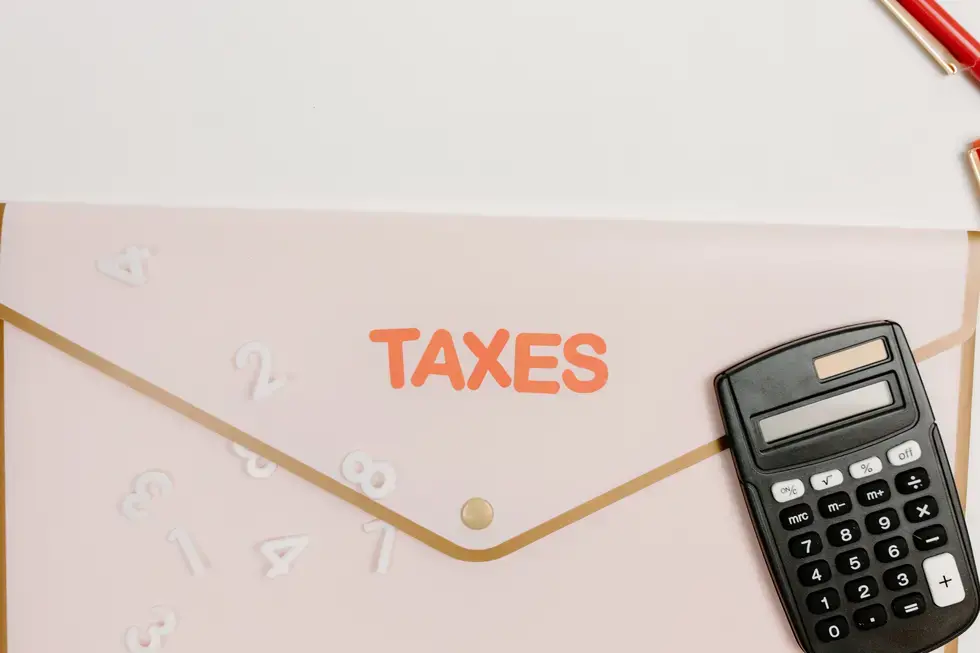The difference between Form 4868 and Form 2350 (expat guide)

Filing taxes as an American abroad creates unique timing challenges, especially when claiming the foreign earned income exclusion (FEIE).
The difference between Form 2350 and 4868 comes down to your specific situation: Form 4868 gives any taxpayer an automatic six-month extension, while Form 2350 is designed exclusively for expats who need extra time to qualify for the FEIE by meeting residency requirements.
Who should use which form? If you simply need more time to prepare your return, use Form 4868. If you're waiting to meet the physical presence test or bona fide residence test to claim the FEIE on Form 2555, you'll likely need Form 2350 instead. Choosing incorrectly can cost you thousands in penalties and lost exclusions.
Key points to take away
- Form 4868 provides a standard automatic extension until October 15 for all taxpayers
- US citizens and resident aliens abroad typically have an automatic 2-month filing extension to June 15 and may need Form 4868 by that date to extend further to October 15
- Form 2350 offers a specialized extension for expats waiting to meet foreign earned income exclusion requirements
- Neither form extends the deadline for paying taxes owed
- Form 2350 requires IRS approval and is not automatically granted
- Choosing the wrong form can result in significant late filing penalties and missed exclusion opportunities
Understanding the difference between Forms 4868 and 2350 is critical for expats claiming the FEIE.
What is the difference between Form 4868 and Form 2350?
The Internal Revenue Service provides different extension options to accommodate various taxpayer situations, but these forms serve distinctly different purposes. While both forms extend your time to file your income tax return, they target different circumstances and offer varying levels of protection for American taxpayers.
What is Form 4868 used for?
Form 4868 serves as the universal extension form available to any taxpayer who needs additional time to prepare their individual income tax return. This automatic six-month extension moves your filing deadline from April 15 to October 15 without requiring special justification or IRS approval.
- General filing delays – When you need more time to gather documents, work with a tax professional, or complete complex tax situations, regardless of your location
- Automatic approval – The IRS automatically grants this extension if you file the form by the original due date and meet basic requirements
- Standard extension period – Provides exactly six months from the original filing deadline, extending most returns to October 15
- No geographic restrictions – Available to all US taxpayers, whether living domestically or abroad
Simple qualification – Requires no special tests or foreign residency requirements to obtain
How to file Form 4868:
-
E-file through tax software or the IRS Free File system
- Mail paper Form 4868 to the appropriate IRS address
- Pay electronically and mark the payment as an extension (this automatically generates your Form 4868 filing)
NOTE! If you're abroad, you generally get an automatic filing extension to June 15 (next business day if weekend/holiday). File Form 4868 by that date to extend to October 15. You can also use our free extension service, but interest still accrues on any unpaid balance from April 15. For more details on electronic payment options, see our guide on how to pay taxes online.
What is Form 2350 used for?
Form 2350 represents a highly specialized extension form designed exclusively for US citizens and resident aliens abroad who need additional time beyond the standard extension to qualify for the foreign earned income exclusion or foreign housing exclusion. This form is discretionary, meaning the IRS must review and approve your request before the later filing date applies.
The IRS created this extension specifically for taxpayers who expect to qualify for the FEIE by filing Form 2555 but need more time to satisfy the physical presence test or bona fide residence test.
Example: Moved abroad mid-year – You relocated to Germany in July 2024 and won't complete 330 days outside the US until May 2025. Form 2350 lets you extend your filing deadline until after you meet the physical presence test.
Example: Need days for PPT – You're a digital nomad who traveled frequently in 2024. By October 15, you'll only have 310 days abroad, but by December, you'll hit the required 330 days in your 12-month period.
Special cases for expats: can't claim the FEIE yet?
The foreign earned income exclusion represents one of the most valuable tax benefits available to Americans living abroad, but qualifying requires meeting specific time-based tests.
If you won't hit 330 days outside the US by October 15, you should consider Form 2350 to extend your filing deadline until you qualify.
For the bona fide residence test, you generally need to establish residency for a full tax year, which might also require Form 2350 if you moved abroad partway through the year.
| Qualification | Requirement | Best for | Extension form usually used | Earliest date you can qualify |
|---|---|---|---|---|
| Physical Presence Test | 330 full days outside the US in any 12-month period | Digital nomads, frequent travelers, new expatriates | Form 2350 | Rolling – depends on your travel dates |
| Bona Fide Residence Test | Establish bona fide residence in a foreign country for an uninterrupted period including a full tax year | Long-term expats, permanent relocations | Form 2350 or Form 4868 | After completing a full tax year |
Both qualifications allow you to exclude a significant portion of foreign-earned income (up to the annual IRS limit) when you file Form 2555. The strict nature of these requirements often creates timing conflicts with standard tax filing deadlines, making Form 2350 essential for many expats who relocated partway through the tax year.

Extending your US tax deadline to December 15 (no Form 2350 required)
- File Form 4868 by June 15 if you're abroad (April 15 if stateside) to secure the automatic six-month extension to October 15
- Submit a written request to the IRS by October 15 explaining specific circumstances that require an additional two-month extension beyond the automatic period
- Provide detailed justification in your letter request, including reasons such as waiting for foreign tax documents, complex international business arrangements, or the host country's tax assessment delays
- Include your taxpayer identification information and clearly state the requested extension date of December 15 in your correspondence
- Mail the request to: Internal Revenue Service, Austin, TX 73301-0215 (per Publication 54 instructions)
- Understand this is discretionary – the IRS may approve or deny this additional extension based on the merit of your circumstances. You'll receive no notice unless your request is denied
- Note: This December 15 extension is not available if you've already been approved for Form 2350
- Prepare for potential denial by having your tax return ready to file immediately if the IRS rejects your December 15 extension request
Deadline ladder for expats
| Deadline | What it is | Applies to | What you do | What you get | Notes |
|---|---|---|---|---|---|
| Apr 15 | Regular deadline; interest starts on unpaid tax | Everyone | File or extend; pay what you can | - | Extensions don’t extend time to pay. |
| Jun 15 | Automatic 2-month filing extension (“out of the country”) | Qualifying expats | If you need more time: file Form 4868 by this date | Filing deadline to Oct 15 | Add a short statement with your return explaining you qualified. |
| Oct 15 | Standard extended filing deadline (after 4868) | Anyone who filed 4868 on time | File your return | Return filed | If you still don’t meet FEIE residency tests, 4868 may not be enough. |
| Dec 15 | Discretionary extra 2 months (by letter) | Some expats abroad | Mail request by Oct 15 (Austin IRS address) | Possible deadline to Dec 15 | IRS usually replies only if denied; not available if 2350 is approved. |
| Form 2350 (date varies) | Extension to meet FEIE residency tests | Taxpayers expecting to file Form 2555 | File Form 2350 | Deadline based on when you’ll qualify | Not a general extension; IRS MeF supports 2350. |
A timely federal Form 4868 usually gives you extra time only if you owe no state tax. If you expect a state balance, many jurisdictions demand their own extension form and payment to stop late-filing and late-payment penalties. Learn more about whether expats have to pay state taxes.
What if you owe taxes as an expat?
When comparing Form 4868 and Form 2350, remember that neither extends the deadline for paying income taxes owed to the federal government, creating potential complications for expats who need filing extensions.
- Payment remains due April 15 – Regardless of which filing extension you obtain, any taxes owed must be paid by the original due date to avoid interest and failure-to-pay penalties. However, there's an important nuance from Publication 54: if you qualify for the automatic two-month extension to June 15 as an expat abroad, interest runs from April 15, but late-payment penalties are assessed from June 15 instead.
- Estimate your tax liability – Calculate your expected tax bill using previous years' returns, current income information, and potential foreign exclusions to determine payment amounts.
- Make provisional payments – Submit estimated tax payments by April 15, even if you cannot complete your actual tax return due to FEIE timing requirements.
- Avoid interest charges – The IRS charges interest on unpaid balances from the original due date, regardless of valid filing extensions.
- Consider estimated tax payments – Make quarterly payments throughout the tax year if you expect to owe significant amounts, reducing the burden at filing time.
- Explore tax amnesty programs – Some expats may qualify for special programs like the Streamlined Filing Compliance Procedures if they have unfiled returns. Note: Streamlined is for past noncompliance, not a filing extension tool.
- Plan for foreign tax credits – If you pay taxes in your host country, these may offset US tax obligations when properly claimed on your return.
What if you miss the extension deadline, or the IRS says no?
Failing to file an extension request or receiving a rejection from the IRS triggers immediate consequences that can significantly impact your tax situation and financial obligations.
- The IRS imposes a failure-to-file penalty of 5% of your unpaid taxes for each month your return is late, up to a maximum of 25% of your total tax bill.
- If your return is more than 60 days late, there's a minimum penalty: the smaller of the IRS-specified amount for the current tax year or 100% of the unpaid tax. This minimum penalty applies even if you owe very little.
Additionally, you'll face late-payment penalties of 0.5% per month on any taxes owed, plus interest that compounds daily from the original due date, creating an expensive situation that worsens with each passing month.
The situation becomes particularly complex for expats who were planning to claim the foreign earned income exclusion but now cannot due to missed deadlines or rejected extension requests. Without properly meeting the timing requirements for either the bona fide residence test or the physical presence test, expats may lose access to the Foreign Earned Income Exclusion for the current tax year, potentially resulting in thousands of dollars in additional tax liability that could have been avoided with careful extension planning.
Furthermore, if your Form 2350 request is denied, you must file your tax return immediately to minimize additional penalties, even though you may not yet qualify for the exclusions you were hoping to claim, potentially requiring an amended return later once you do meet the qualification requirements.
Create your account and get professional help

FAQ
Neither Form 2350 nor Form 4868 moves the April 15 payment deadline, only the filing date.
Form 2350 is discretionary; the IRS must review and accept it before your later filing date applies.
If you qualify as 'out of the country,' you automatically get until June 15; attach a statement to your return explaining how you qualified. File Form 4868 by your applicable due date if you need more time.
Yes, Form 2350 is available for e-filing through the IRS Modernized e-File (MeF) platform. Both professional tax software and some consumer packages support electronic filing of Form 2350. Check your software's feature list rather than mailing a paper form.
Generally no. Per Publication 54, the discretionary December 15 extension is not available if you've already been approved for Form 2350. The two extension paths are mutually exclusive.
In most cases, no. The 4868 vs 2350 decision is usually either/or, not both. You'll file either Form 4868 (for a standard automatic extension) or Form 2350 (to wait for FEIE qualification), but not both. However, if your Form 2350 is denied, you may need to immediately file a regular return or request a Form 4868 extension if still within the timeframe.
Yes, using IRS Direct Pay, EFTPS, or credit/debit cards lets you make a payment that automatically generates a Form 4868 extension confirmation.



